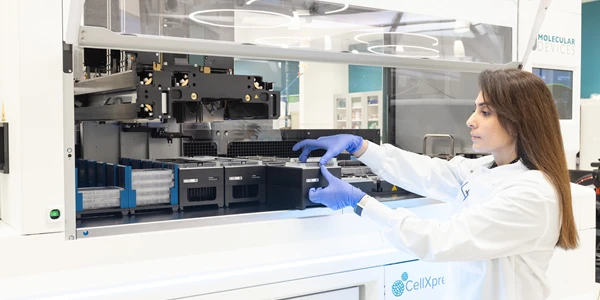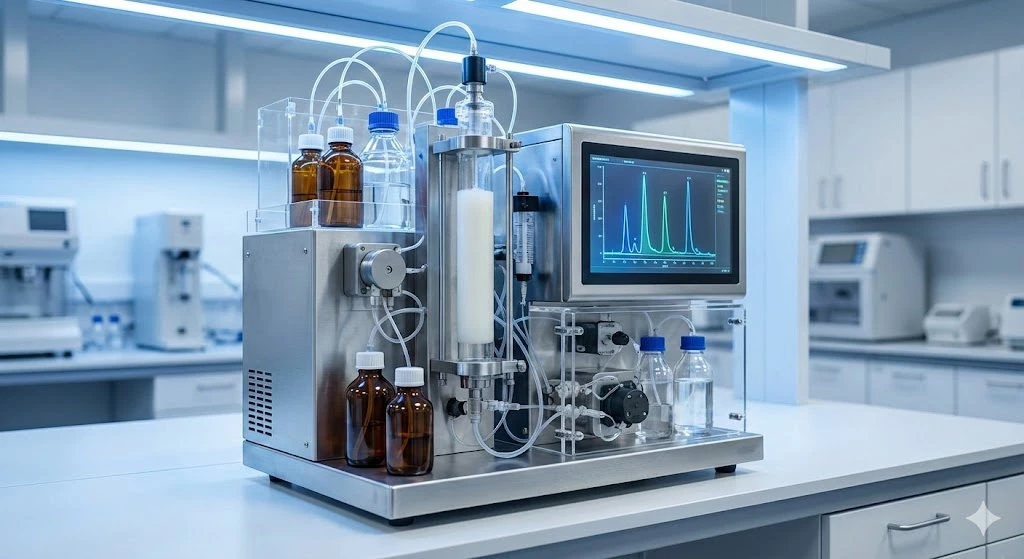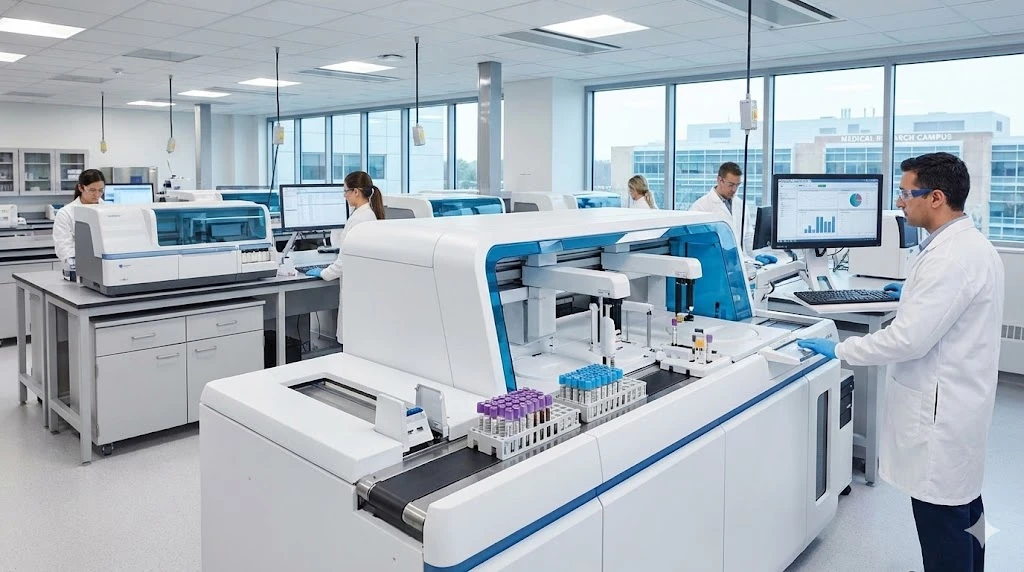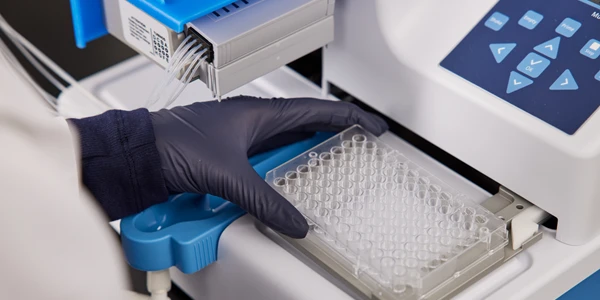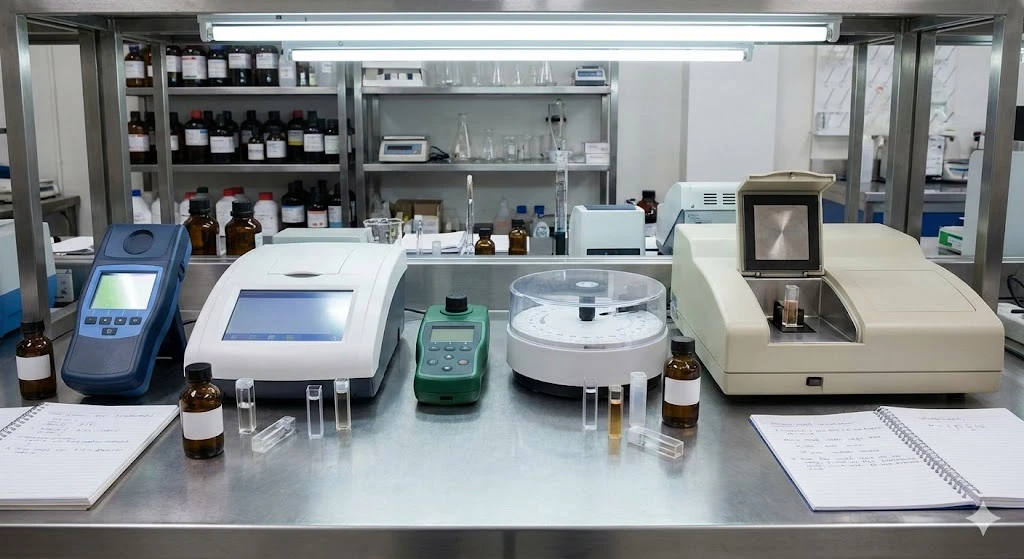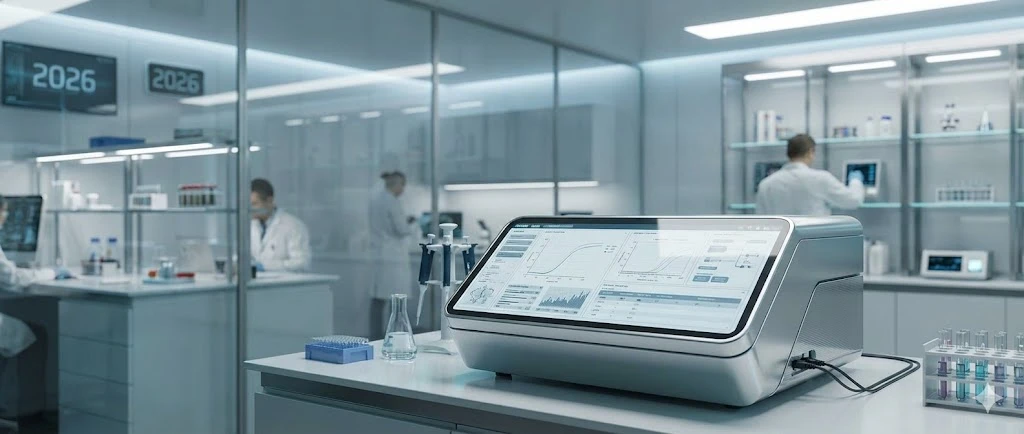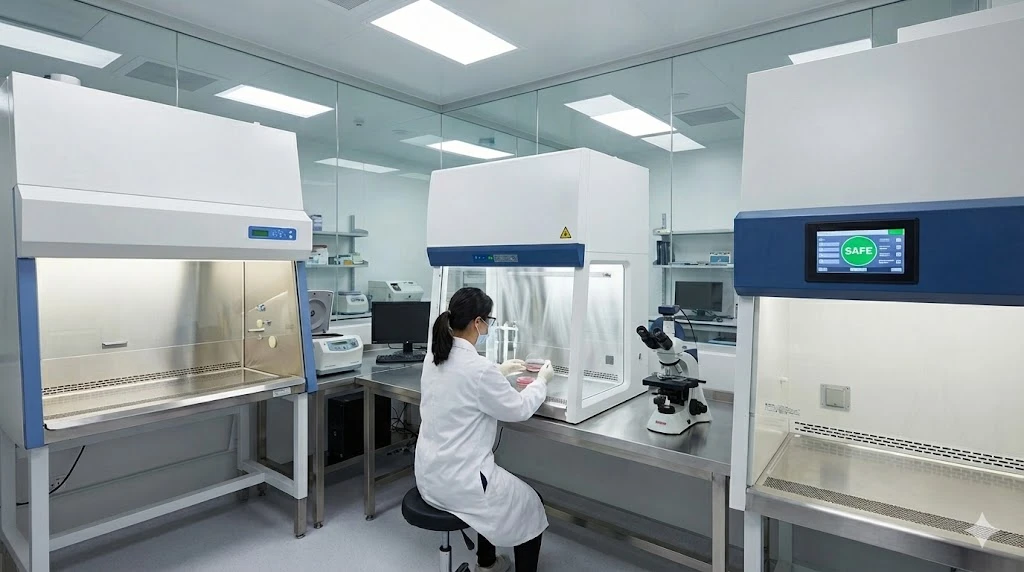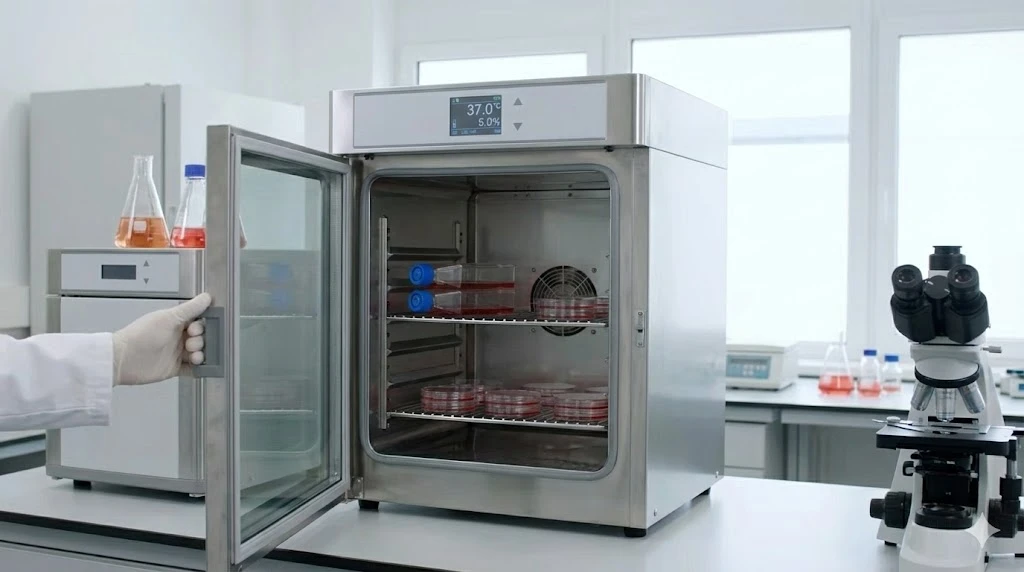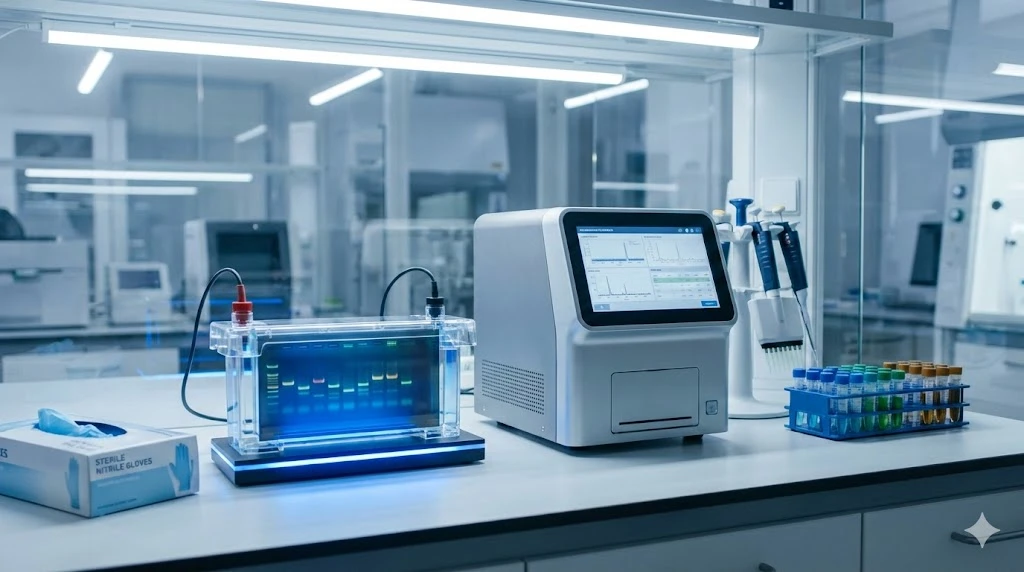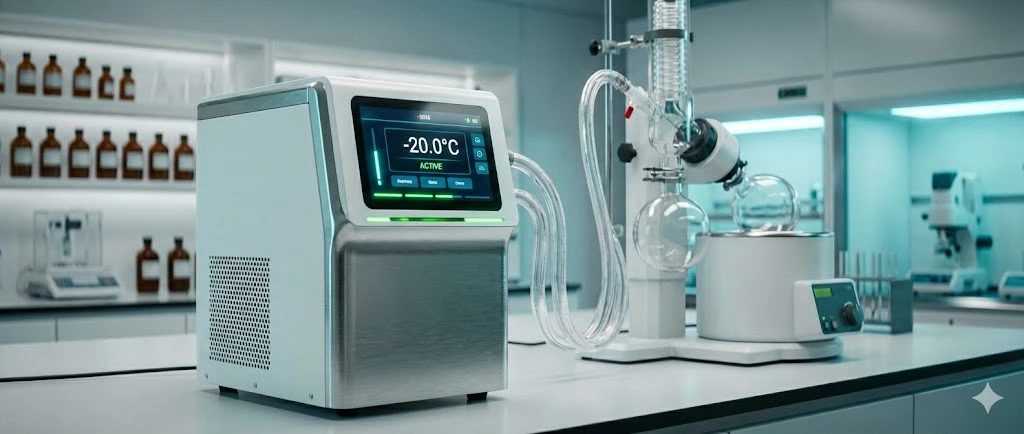Evolving PCR Technologies for Covid-19 Testing and Future Clinical Applications
Many new PCR products have come to light offering enhanced performance for critical applications
PCR has advanced by leaps and bounds in recent years. Quantitative PCR platforms have significantly advanced the clinical diagnostics space. Digital PCR solutions have increased sensitivity and throughput across many fields from infectious disease research to diagnostics and more. Innovative technologies such as LAMP (loop-mediated isothermal amplification) are now making simplified, remote testing a reality.
The critical role of RT-PCR testing platforms during the SARS-CoV-2 pandemic demonstrates that PCR technology not only continues to evolve, but is growing to meet challenges of unprecedented scale and importance. Looking towards the future, it is clear there are many obstacles to navigate in the areas of public health and emerging infectious diseases. New PCR products built for multiplexed , simplified, and remote virus detection and differentiation offer important solutions for treatment and vaccine surveillance efforts.
Efforts are underway to create multi-valent vaccines that offer protection against not only SARS-CoV-2, but influenzae (flu), respiratory syncytial virus (RSV), and other related coronaviruses. On the testing front, several important new products have hit the market that offer multiplexed detection of the above viruses as well. Beyond this, there are several innovative testing technologies that offer advantages for rapid, isothermal, and simplified virus testing. Here are a few recent diagnostic solutions - EUA tests approved by the FDA for emergency use.
Multiplexed RT-PCR virus detection
The TaqPath COVID-19, FluA, FluB Combo Kit from Thermo Fisher Scientific enables simultaneous qualitative detection and differentiation of nucleic acid from multiple viruses.
- Viruses detected – SARS-CoV-2, influenza A, and/or influenza B
- Sample specimens – nasopharyngeal and anterior nasal swabs obtained by health care provider
- Authorized labs – certified CLIA labs that meet requirements to perform high complexity tests
Testing methodology – nucleic acid is initially extracted, isolated, and purified from specimens. The nucleic acid is reverse transcribed in cDNA followed by real-time PCR using an authorized instrument. The TaqPath Combo kit contains RT-PCR multi-mix, MS2 phage process extraction control, and virus positive RT-PCR control.
Performance – Limit of Detection (LOD)
- SARS-CoV-2 – 100 GCE (genomic copy equivalent)/mL
- Influenza A – 200-500 GCE/mL
- Influenza B – 500-1,000 GCE/mL
The kit can be interfaced with automated nucleic acid isolation and can run on two authorized RT-PCR platforms – Applied Biosystems 7500 Fast Dx Real-Time PCR System and QuantStudio 5 Real-Time PCR System. Results are provided in user-friendly report form via Applied Biosystems Pathogen Interpretive Software.
The kit is all-inclusive and does not require any external reagents. It must be run in CLIA certified labs with samples obtained by healthcare professionals. Testing takes three hours from sample processing to result.
Rapid isothermal detection
The ID NOW COVID-19 point-of care kit from Abbot offers qualitative detection and differentiation of nucleic acid from SARS-CoV-2 virus.
- Viruses detected – SARS-CoV-2
- Sample specimens – nasopharyngeal and anterior nasal swabs obtained by health care provider within initial seven days after onset of symptoms.
- Authorized labs – certified CLIA labs that meet requirements to perform high, moderate, and waived complexity tests – point-of-care (POC) CLIA-waived facilities.
Testing methodology – The device consists of:
- Sample Receiver containing elution/lysis buffer
- Test Base comprising two sealed reaction tubes each containing a lyophilized pellet
- Transfer Cartridge for transfer of the eluted sample to the Test Base
- The ID NOW Instrument
The Sample Receiver and Test Base are inserted into the ID NOW Instrument and the sample added to the Sample Receiver where it is transferred via the Transfer Cartridge to the Test Base, initiating target amplification. Heating, mixing and detection are provided by the ID NOW Instrument.
The ID NOW COVID-19 assay includes the following materials or other authorized materials: Test Bases, Sample Receivers, Transfer Cartridges, Patient swabs, Positive Control swab, Negative Control swab.
Performance – Limit of Detection (LOD)
- SARS-CoV-2 RNA – 125 GCE/ mL
Positive results are achieved in 5 minutes, negative results in 13 minutes. Technology targets the RdRp gene in SARS-CoV-2 positive samples. Timely results enable healthcare professionals to make appropriate and more efficient treatment and infection control decisions. EUA supports flexible near patient testing environments.
Transcription Mediated Amplification
The Aptima® SARS-CoV-2/Flu assay from HOLOGIC utilizes proprietary TMA® (transcription mediated amplification) technology for the qualitative detection of RNA from SARS-CoV-2 and differentiation of SARS-CoV-2, influenza A and influenza B in isolated and purified from patient samples.
- Viruses detected – SARS-CoV-2, influenza A, and influenza B
- Sample specimens – nasopharyngeal, nasal, mid-turbinate and oropharyngeal swab specimens, and nasopharyngeal wash/aspirate or nasal wash
- Authorized labs – certified CLIA labs that meet requirements to perform high complexity tests.
Testing methodology – Intended for qualitative detection of nucleic acid from SARS-CoV-2 in pooled samples containing up to 5 individual NP or OP swabs (collected by a healthcare provider), or nasal or mid-turbinate nasal swabs (collected under observation of or by a healthcare provider), where each specimen is collected using individual vials containing transport media.
The Aptima SARS-CoV-2 assay combines the technologies of target capture, Transcription Mediated Amplification, and Dual Kinetic Assay. The Aptima SARS-CoV-2 assay is performed on the Panther and Panther Fusion system, or other authorized instrument, which is an integrated nucleic acid testing system that fully automates all steps necessary to perform various Panther Fusion assays from sample processing through amplification, detection, and data reduction.
The Aptima SARS-CoV-2 assay includes the following materials or other authorized materials:
- Aptima SARS-CoV-2 Refrigerated Box (Aptima SARS-CoV-2 Amplification Reagent, Aptima SARS-CoV-2 Enzyme Reagent, Aptima SARS-CoV-2 Probe Reagent Aptima SARS-CoV-2 Internal Control)
- Aptima SARS-CoV-2 Room Temperature Box (Aptima SARS-CoV-2 Amplification Reconstitution Solution, Aptima SARS-CoV-2 Enzyme Reconstitution Solution, Aptima SARS-CoV-2 Probe Reconstitution Solution, Aptima SARS-CoV-2 Selection Reagent, Aptima SARS-CoV-2 Target Capture Reagent, Reconstitution Collars and Master Lot Barcode Sheet).
Performance – Limit of Detection (LOD)
- SARS-CoV-2 – 0.001 TCID50 /mL
- Influenza A - 0.003-0.03 TCID50 /mL
- Influenza B – 0.01- 0.3 TCID50 /mL
The benefits of transcription mediated amplication using the Aptima assay include allowing either a single patient specimen or pooled samples to be analyzed for SARS-CoV-2 and influenza viruses on a single, high-throughput, fully-automated platform – thereby boosting efficiency and increasing clinical insight.
Outlook
- Multiplexed PCR technologies allow higher confidence in detection and enable differentiation between multiple virus types.
- Isothermal amplification technologies permit rapid detection of virus using simplied tools and reagents.
- Transciption mediated amplification technologies enable rapid point of care testing of single and pooled samples.
These approaches and others born from the research realm are making significant impacts in the clinical diagnostics world. New and evolving PCR technologies may have similar purpose, expanding our capabilities in combating emerging infectious diseases and other future clinical challenges.
Visit the PCR - RT-PCR - and Digital PCR listings on LabX.com
